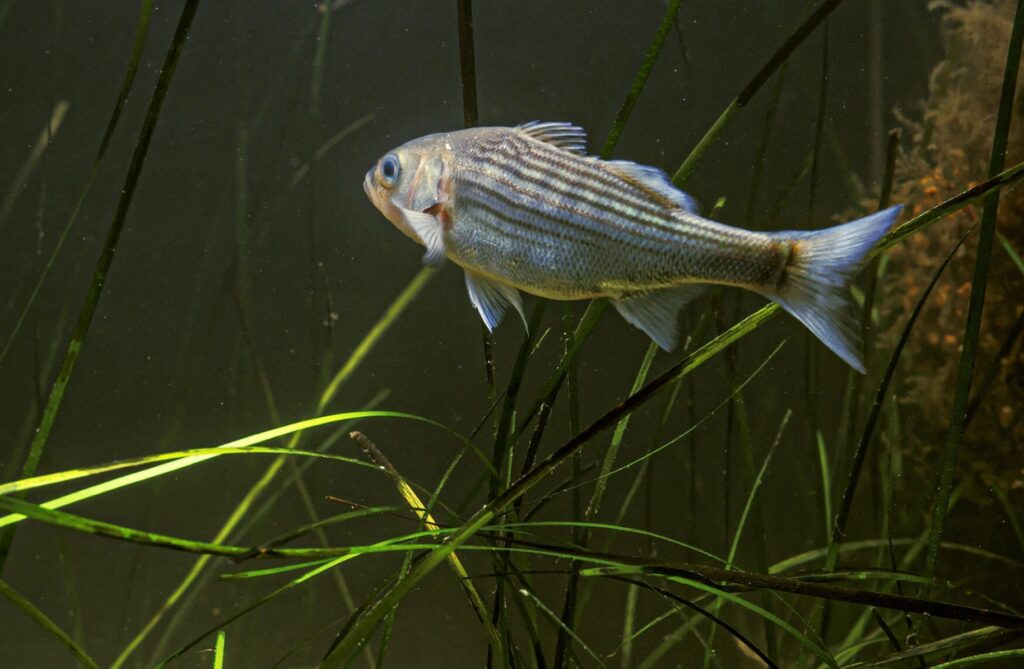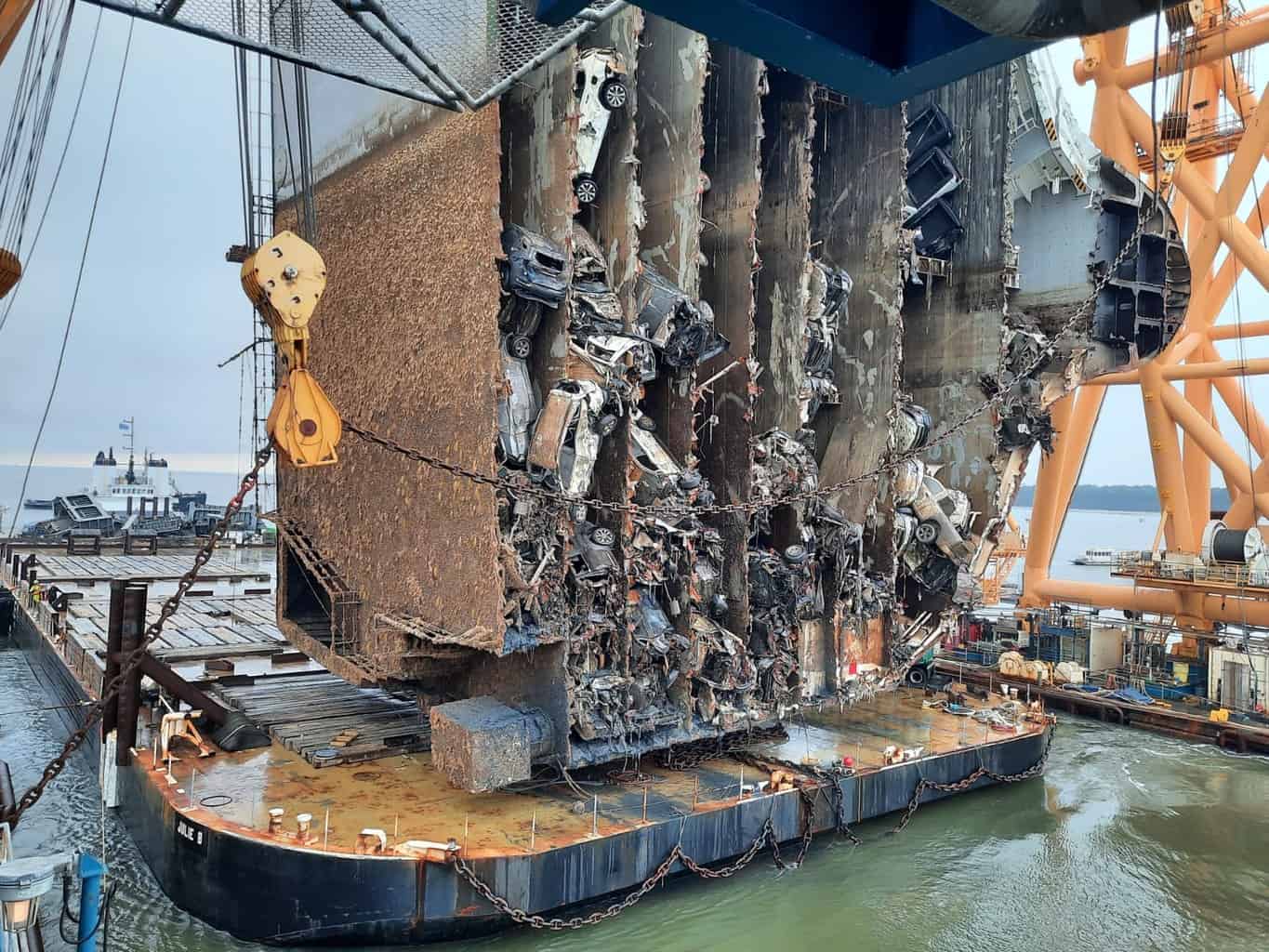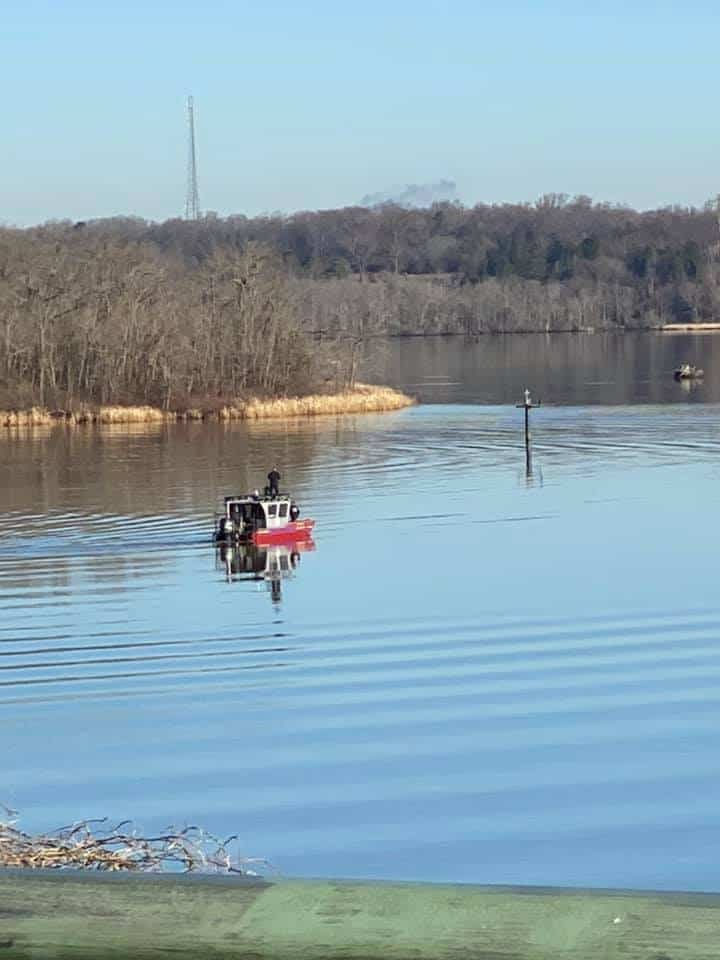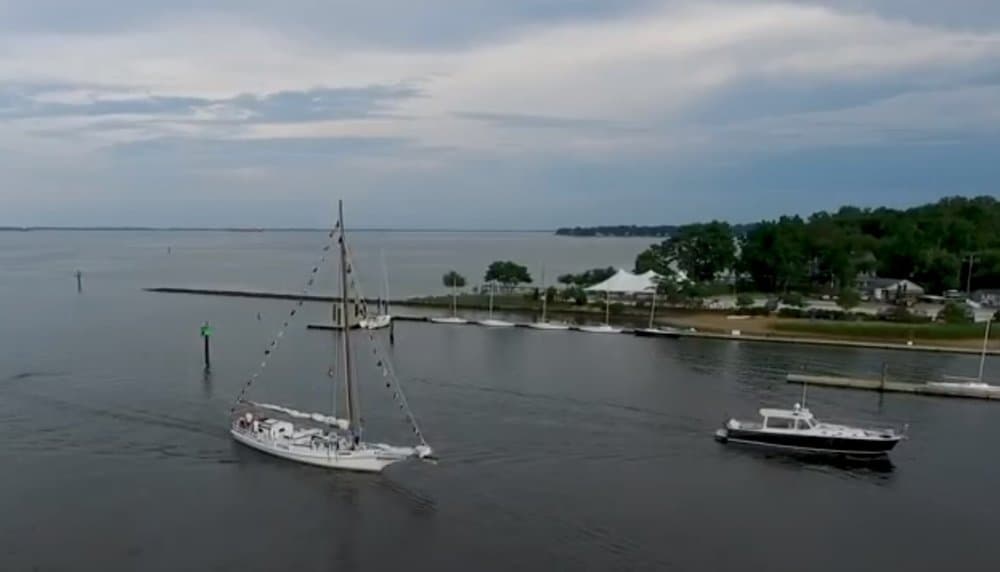By Timothy B. Wheeler, Bay Journal News Service
Anglers will be barred at least until next year from catching the biggest Atlantic striped bass under a new emergency measure intended to protect the popular but troubled fish. Regulators are still grappling with longer-term next steps aimed at restoring rockfish abundance.
The striped bass management board of the Atlantic States Marine Fisheries Commission—which regulates in-shore catches of migratory fish—agreed on Aug. 1 to extend the 31-inch size limit it had imposed in May.
That limit, originally scheduled to expire on Oct. 28, is to remain in effect for another year or until the board has replaced it with other conservation measures.
Striped bass, also known as rockfish, are one of the most sought-after sport and commercial fish in the Chesapeake Bay and along the mid-Atlantic coast. The commission has imposed tighter catch rules the last few years after scientists warned that they were being overfished and that numbers of adult female fish had fallen below what is needed to sustain the population. Scientists say catch-and-release fishing by anglers is killing many fish in summer when they are weakened by warm water temperatures and lower oxygen levels.
Despite other fishing restrictions imposed in 2020, the estimated recreational catch of striped bass coastwide nearly doubled in 2022 over the previous year’s tally. The commission took immediate emergency action in May while weighing further steps as scientists warned that the prospect for rebuilding the population by the end of the decade was fading.
They settled on the 31-inch limit as a way to reduce the harvest of striped bass spawned in 2015. That was the last bumper crop of the species and those fish are a critical component of the spawning population. The striped bass population has suffered weak reproduction the last four years.
The 31-inch limit mainly affects anglers fishing along the coast because striped bass that large spend most of the year roaming the Atlantic. They only enter the Chesapeake in spring to spawn, and most have returned to the ocean by May, when anglers can begin to catch striped bass in the Bay.
At their August meeting, commission members struggled over a menu of potential new restrictions on commercial as well as recreational fishing to supplant the interim 31-inch limit. Robert T. Brown Sr., president of the Maryland Watermen’s Association, objected to proposed changes that would reduce the commercial catch. He called them an unwarranted hardship on the commercial fishery which he noted is already tightly regulated and responsible for only about 10 percent of the striped bass removed coastwide from the population.
After a five-hour back-and-forth over refining and revising the potential curbs, the commission deferred action until October and asked its staff to report back on how some of the changes might affect future spawning prospects. The commission had planned to hold public hearings in August and September on the various catch restriction options before making its decision in October. But final action now likely has been delayed until January 2024, at the earliest.
David Sikorski, executive director of the Coastal Conservation Association Maryland chapter and a member of Marland’s commission delegation, called the 31-inch limit extension “an important stopgap measure.” He warned that the delay on other measures “leaves uncertainty in our ability to meet our rebuilding goals and reduce fishing mortality ahead of the 2024 fishing year.”
Martin Gary, chair of the striped bass management board, who is also executive secretary of the Potomac River Fisheries Commission, said it was “really challenging” to figure out an equitable way to impose restrictions on recreational and commercial catch, given the many differences in striped bass fishing along the coast and in the Bay.
“I am confident, though, we’ll get this done,” he said.




